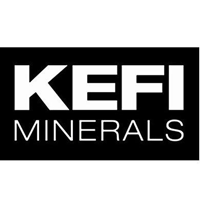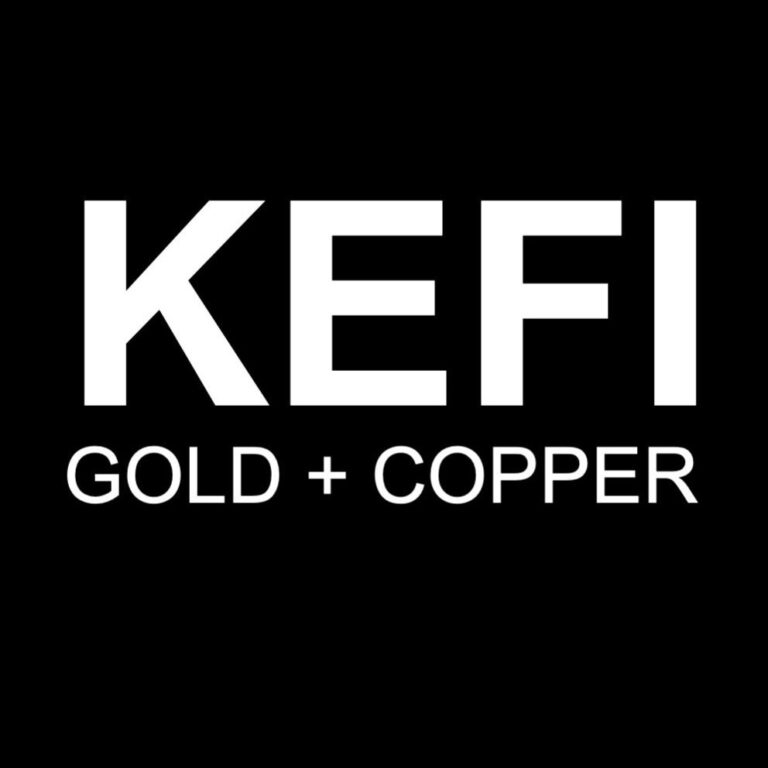KEFI Minerals plc (LON:KEFI) Managing Director Harry Anagnostaras-Adams caught up with DirectorsTalk for an exclusive interview to discuss the Project Equity Investment Agreement with ANS.
Q1: Harry, you’ve signed a Project Equity Investment Agreement with ANS Mining Share Company, how much is this for and what does it mean for the company?
A1: It’s a binding agreement for a $30 million equity subscription to the project company for the Tulu Kapi project subsidiary in Ethiopia, it looks like it’ll go up to $38 million but it’s binding for $30 million.
What does it mean? It means that we’ve effectively raised all the project development requirements at the project level, it was a $300 million project as defined to us when we bought it at the beginning of 2014, we have effectively funded at the project level other than paying for our studies so on from the parent company.
Q2: So, can you give us a bit more detail on the agreement terms?
A2: ANS is a newly-formed, just registered, company, the people behind it we’ve known for a long time, very senior local business people, chairman of banks and so on. They formed ANS to invest in this special purpose investment vehicle, formed up its Board recently, the founders or the directors they have all committed to putting in 10% of the $30 million themselves to get the ball rolling.
They reached out to the institutions that they know so well in Ethiopia, banks and insurance companies, and the idea was to go from there to the clients of those institutions and sweep up the rest of the capital that they wanted to put into this new sector which for them is an exciting new sector in Ethiopia. So, what they have found is they don’t need to go beyond the institutions, they’ve got a full book of applications for more than the $38 million between the institutions that they’ve gone to.
It comes in two instalments, first the sum of $9 million at the local currency equivalent should be subscribed to Tulu Kapi Gold Mines (TKGM), the project company during this coming quarter. The second instalment to be set aside, also probably during this quarter but certainly within the following 3 months, in time for the full finance closing.
The price is set at a bit over $1 million a percentage point so it implies, if you like, a $60 million to $70 million valuation for our retained holding in the project.
Q3: What are your next steps in the short term for the Tula Kapi project?
A3: In so far as the financing is concerned, there are conditions precedent to the subscription, so we have to square those off, they don’t appear terrible ominous because we’re working through each month, things crossed off the list.
Probably the two most important conditions for the $9 million to come in, in the last quarter of this year, is first off, the administrative consents, particularly the government to permit the subscription for ANS because it has to waive its right to take up the share issued by TKGM, I don’t think that’s an issue. There’s not really much left on the plate for administrative consents for the onus, the $9 million to come in. The other thing is to firm up, to ANS’s satisfaction, the terms of the fully secured funding, the non-equity funding, and again that shouldn’t be an issue either. So, priority number one is to make sure that those funds come in.
On the ground, in Tula Kapi, the work season has just come to an end in Ethiopia and there are a number of things we have to do during these few months, just following the wet season and we plan to then trigger the community resettlement. The timing of the triggering is totally up to the government but we’re doing all within our power to ensure we’re ready to go as soon as the government press that trigger and we’ll set something around the end of December for triggering the resettlement.
Between now and then, there’s some roads to cut in, there’s some drilling for foundation works to do and all sorts of processes that we go through before triggering a community move. So, it’s on the ground and behind the scenes, engineering-wise, there’s a lot of implementation planning going on, our implementation team will be out at site again next week, that’s twice in a few weeks, the nitty gritty planning for kicking odd implementation of construction.
Q4: So, you’ve maintained a strong social ethos, can you tell us a bit more about the community resettlement, the training and the employment programmes that KEFI Minerals are deploying?
A4: In today’s world, we’re the ones building a mine in Australia, Canada, Scandinavia or Ethiopia, one should follow the international standards, the principals and the IFC standards under The World Bank for environmental and social and that’s the standards we set wherever we work. That means that we have to do things beyond what the local law requires and meet those standards, it’s not altruism, it’s just doing the right thing and that is certainly what to expect to move into international finance as well.
In Ethiopia, it’s particularly sensitive. We have a good name if I say in Ethiopia, the company has built a school but in particular, the last couple of years of social unrest in the country leading to a change of government leadership earlier this year, one of the soar points across the whole population was the mishandling of some communities during development. There’s huge economic development in Ethiopia, it’s one of the highest growth countries in the world, there’s roads, trains and factories, there’s all sorts of things going on in this country and some of the communities have been mishandled, that was one of the root causes of the social unrest. Throughout all of that, we maintained a very calm mutually trusting relationship with the community at Tula Kapi, we’ve never had any accusations or criticisms, but it only comes from doing the right thing and being persistently disciplined to do that.
When it comes to some specifics to answer your question, after training for the first couple of years over 95% of personnel will be from the local area. In the meantime, what will happen on the ground it’ll seem quite dramatic, everything going according to plan in about a year from now there’ll be about 1,000 people working out of the site, most of them will be local and as I said, within a few years over 95% will be local people.
We will have resettled the community, it has to be resettled, about 450 households that’ll have better homes, money in their pocket, restoration programmes, we’ll have kicked them off, mechanical cultivation of their new farmlands to kick them off, schools, health services, health facilities, staff for schools and staff to help facilities. We’ll make sure they’re all there, the community development fund, these are all part of the package.
At this moment KEFI has about 50 people in its teams full-time and most of those people are involved in community issues, obviously that’ll change but it’s always been our priority. If done properly, the community is our best defenders, ambassadors, employees, neighbours and improperly, it’s the opposite but it will be done properly.







































